3 Steps to Top Google Visibility
Once you understand what makes a webpage show at the top of search results, it’s easy to create an effective SEO plan for your own website. And you can boil that down to just three areas, but before we get into those, let’s first make sure we really understand SEO.
So let’s step back for a moment and consider what the Web actually is in its most basic form. The Web is nothing more than trillions of digital pages connected by links. Lets first address the importance of pages.
A Bunch of Pages
All pages on the internet must be categorized by search engines like Google so when someone enters their search query, all the relevant pages in that category show up. Google lists those pages in order of importance and relevance to the searcher. Getting your page to show for the right users is SEO, or Search Engine Optimization.

A Bunch of Links
The Web connects your pages through links. For example, if you search for a topic in Google, your search results page will render a list of links to other pages that are relevant to your search query. The pages on your website are linked to other pages through your navigation. You can also find links on almost every page on the Web. Pages and links, pages and links.
Search engines like Google send out digital crawlers called web bots or spiders that crawl those pages using the links between them to find even more pages, scouring content to determine how to categorize each page.
The information they find should tell them which consumers would be interested in the content. The web bots even watch how users interact with the pages to gather even more data.
You’ll understand more about the importance of links in a little bit, but first, lets see how we can create pages that rank well.
Prioritizing Pages
Google wants its search engine to be effective and highly relevant so consumers keep coming back to it more and more; therefore, it’s in Google’s best interest to show the most relevant pages to consumers (categorizing) and then ranking them in order of importance (prioritization).
Your job is to convince Google that your pages are indeed the most valuable to consumers. Here’s how:
Technical SEO
When my team and I build a website, we implement hundreds of technical SEO features that make your website crawl-able by the search engines and easily categorized within search results. These features include everything from security, code optimization, proper use of tags, fast loading pages and a lot more, all of which Google loves; so much so, that It actually gives you a ranking boost when done properly.
I’m not going to address any of this technical SEO here because it’s something your web developer should implement, not you. Once these features are set, most of them don’t need to be revisited on a regular basis. But let’s address what you can do.
First Step: Write Deep, Comprehensive Content
Keep adding good content. Content that would be relevant to the type of visitors you want to attract. Don’t worry about keyword density and other outdated tactics. Just add content and copy that your users will find useful.
Google loves deep, relevant and unique content. What do I mean by deep? Give your visitors everything they would want to know about a particular topic. For example…
Ending Search
Here’s a good way to look at it: If your visitor is searching the Web for information on a particular topic, think of what information you would need to give them that would end their search. They should arrive to your page and decide,
“Hey, this is everything I was looking for. I don’t need to keep looking further.”
Do that, and you’ve essentially ended the user’s search.
Remember those bots? Well, they’re taking notice. If your website continuously “ends search,” it tells Google that visitors are finding your content valuable. They’re getting everything they need and don’t need to keep searching.
If they’re staying on your page for a while, engaging with you, then those are also signs that you have provided valuable content. And this is key: the more valuable you are, the more Google will make your page visible so others can find it easily as well. In other words, your relevant, valuable page will get an uplift in search results.
The more that consumers like your content, the more Google likes your content. Since Google wants to make good content available to more users, it shows the good stuff at the top of search.
Avoid Boring and Meaningless Content
If your visitors are finding your page, but clicking the back button and searching your competitors for better offers or information, this could tell the search engines that you don’t have much to offer. This is why I cringe every time I read shallow, meaningless content on pages.
Too many people don’t know what to put on their pages so they just fill it with a bunch of garbage, meaningless lists or worse, they copy it from other websites. Don’t do this. Google hates duplicate content.
Second Step: Engage in an Inbound Link Campaign
OK, back to links. Inbound links are simply a link from another website to yours. Why is this important? When another website links to yours, it means the owner of that website believes your content is valuable; so valuable, that they are willing to send their visitors to you via the link.
Google believes that links are such an important indication of good content, that they have admitted inbound links to be one of their top three ranking factors.
More and more links indicate to search engines that people are valuing your content. Therefore, they will make your page more visible in search because it is likely that others will find it valuable to. The way to make your content more accessible to consumers is to position it near the top of search results so it’s easy to find.
Do you see a theme developing here? Google wants to make important content easily accessible to its users, so it ranks what it believes to be the most important, relevant and useful at the top of search. Your job is to create that content and make it accessible to both users and bots.
Get Mostly Relevant, Authoritative Links
Be careful. Marketers have long since figured out how important links are so they’ve done everything they can to manipulate the practice to get as many links pointed to their websites as they can.
They use all sorts of tactics such as paid link farms, automated linking schemes and more. But Google has a lot of really smart software engineers to fight web spam and now only relevant, authoritative links are helpful for SEO.
To see the difference between a relevant link and one that might appear spammy, let’s use an example. Say you own a flower shop in San Diego, California. Links from an auto detailer website in New York aren’t going to do much good for your position in search results. The auto detailer is not relevant to the flower business and it probably doesn’t have much authority either.
A few links like this are fine and can help a little, but get dozens of non relevant links while having no authoritative links, and your position within search results will actually decline.
Furthermore, it’s against Google’s terms of service to purchase links or to conduct in practices that are meant to game the system. Google wants you to get links naturally.
How to Get Inbound Links
Nonetheless, you should engage in a long-term link building campaign to get legitimate, relevant and authoritative inbound links. So how do you do that? Here are a few ideas:
The Media
Get a media source like a newspaper, magazine or news show to do an article on your business. In most cases, they’ll post the article online and link to your business, giving you big brownie points from Google.
A national article is great because papers like the New York Times and Washington Post have a lot of authority, but local papers are relevant if you sell to a local community. So both types are good.
Do This: I was once the Communications Director for a candidate for US Congress. The candidate was also a retired Navy Seal and combat veteran so I contacted all the local news organizations to make sure they knew he was available as an expert whenever they were doing a story involving the military, veterans, national security and even foreign affairs. We got a ton of coverage because of this. Can you do the same? Are you an expert in your industry? If so, reach out to the media and make sure they give you a link whenever they quote you in an online article.
Vendors
If you have suppliers or vendors, be sure to have them add a link from their website to yours. The links from them are highly relevant. That’s an easy one.
Business Directories
You should absolutely be visible in online business directories like the Chamber of Commerce website, Yelp, the Online Yellow Pages, Angie’s List and Google My Business if you sell to a local community.
Just get your business listed in the big directories and those that are niche or community specific. Most are free, but a few are paid. You’ll have to decide if the paid directories are with it for you.
Don’t worry about the small ones. The link juice you get from Tim’s Business Listings are not worth the effort, but the yellowpages.com is.
Be sure that your business name, address and phone number are listed exactly the same in all directories across the web. This is very important. If there are inconsistencies, you can confuse the web bots and they may not know how to categorize your website.
Public Relations
People often ask me to do SEO for them. As mentioned, my agency only does technical SEO as a value added service when we design a website. We believe that ongoing SEO is best done in-house.
If you do go for outside help, find a public relations agency that understands SEO. They’re the ones with the media connections to get you mentioned in important publications and on websites that can link to you.
Community Involvement
Getting out in your community, sponsoring an event or donating to a local charity is a good way to get that organization to link back to your website. The source may not be relevant to your business, but that’s OK in this case. If it’s a legitimate organization and is local for you, then it will help.
Guest Posting
There is some debate as to whether or not posting an article on a blog, in a forum or on another website is an effective linking opportunity. The idea is that somewhere in that post or author’s bio, you can link back to your website.
The practice has been manipulated a bit over the years and Google knows this; however, any link that targeted consumers use to find your website is a good link. If people are interacting with you on your website via a link in a guest post, then by all means, it’s a good link and will help your SEO.
Share good content
You already know you’re supposed to be writing good content. You should share it on social media like Facebook, Instagram and anywhere else your customers are likely to hang out. If it’s good enough, you’ll create a small buzz and you’ll soon find others mentioning it in forums, comments and blogs.
This is actually the idea search engines like Google have in mind. They want to see good content shared by others as an indication of how important your website is. So get it out there and others will be compelled to link to it.
Step 3: Get More Targeted Traffic
Simply put, the more engaging traffic you get, the better your website will do in search results. You have to do more than drive traffic, though. If you can get people to consistently visit your website, scroll down the page, click on things, fill out web forms and so forth, then you should see an improvement in search results.
Your visitors should be targeted and you need to have a good user experience on your pages. Your web designer should have taken care of this for you.
Keep adding relevant content. You can do this in the form of blog posts or landing pages. Share your engaging content across social media.
Or, you can even purchase ads. Digital advertising like Google Ads is a great way to get immediate traffic and sales. Even though traffic from paid ads won’t help your website rank better in organic search results, user engagement will.
Go Offline
Offline promotions and advertising can help you get web traffic, especially if you tie a promotion to a coupon or discount the user can only access from your website.
SEO works best within the context of a larger marketing campaign. It should never be done alone, but with other promotional strategies such as offline advertising.
Wrapping it All Up
You don’t need to hire an SEO agency to rank well in Google search results. The areas I outlined above comprise almost 90% of what an SEO agency would do for you, and given that there are so many SEO companies out there using old, outdated methods, chances are they’d do more harm than good. To summarize, do this:
- Keep writing good, comprehensive (deep) content
- Engage in an inbound link campaign
- Keep driving targeted, relevant traffic to your website
Consistently work on these three areas as outlined above and you’ll find your website showing more prominently for more consumer searches.
As always, I’d like to know your thoughts. Do you have any ideas for getting links? Please provide your questions and feedback in the comment section below.

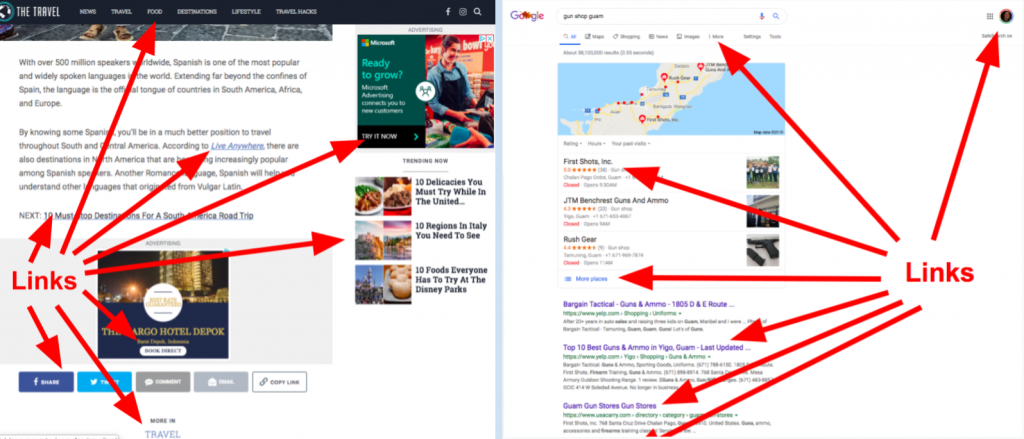

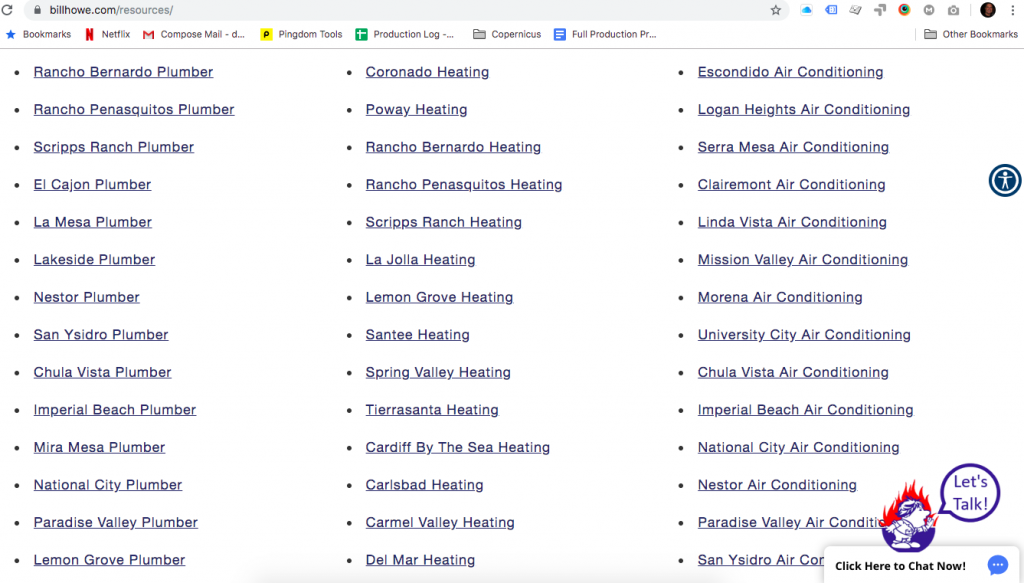
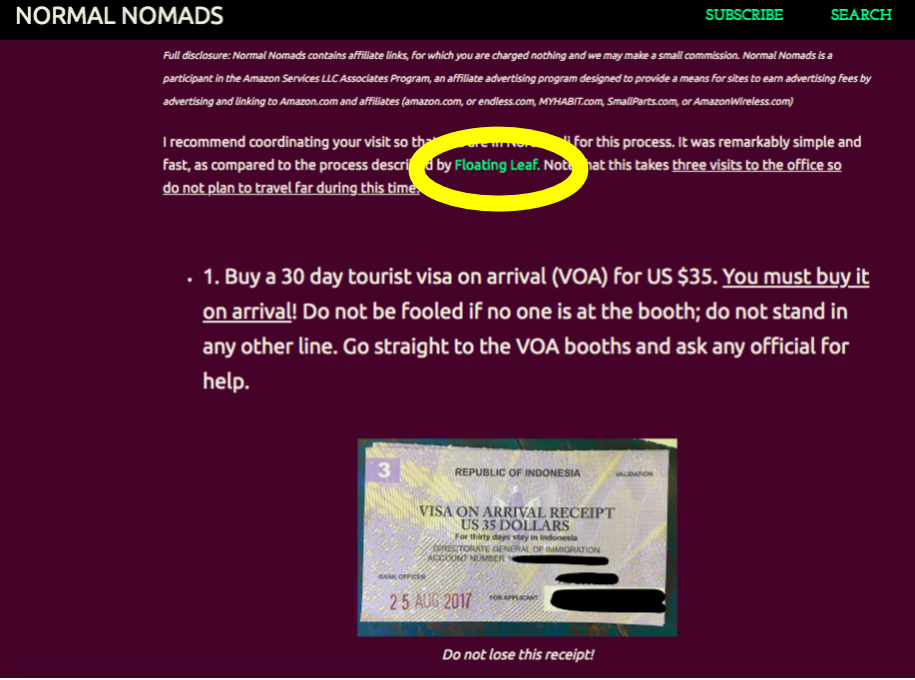
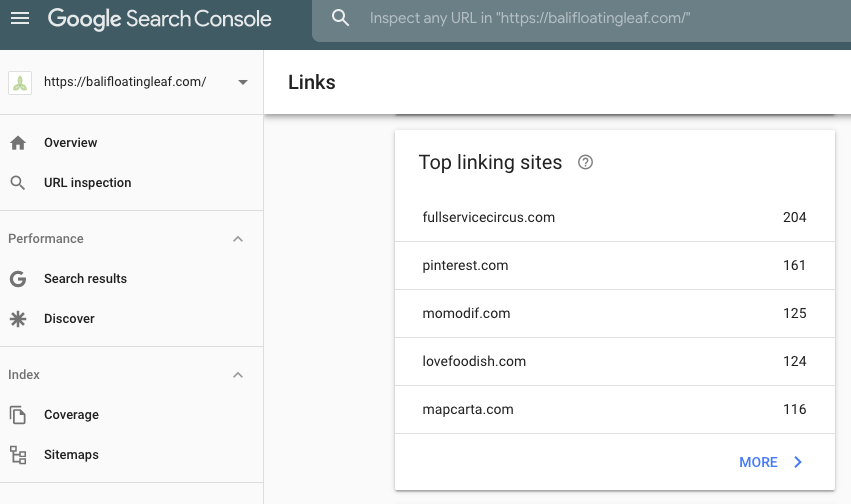
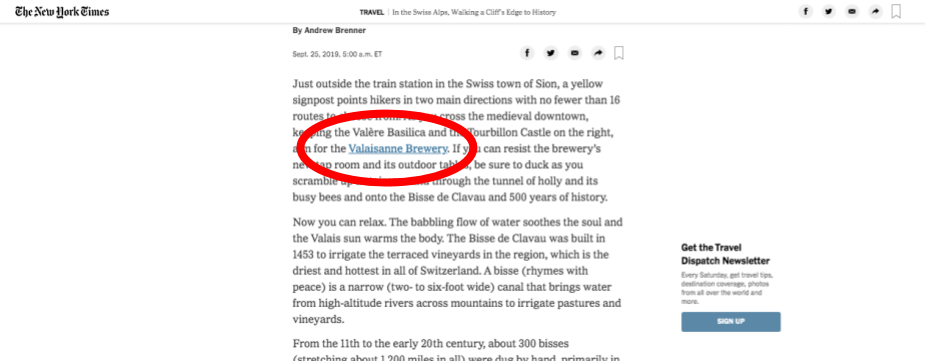
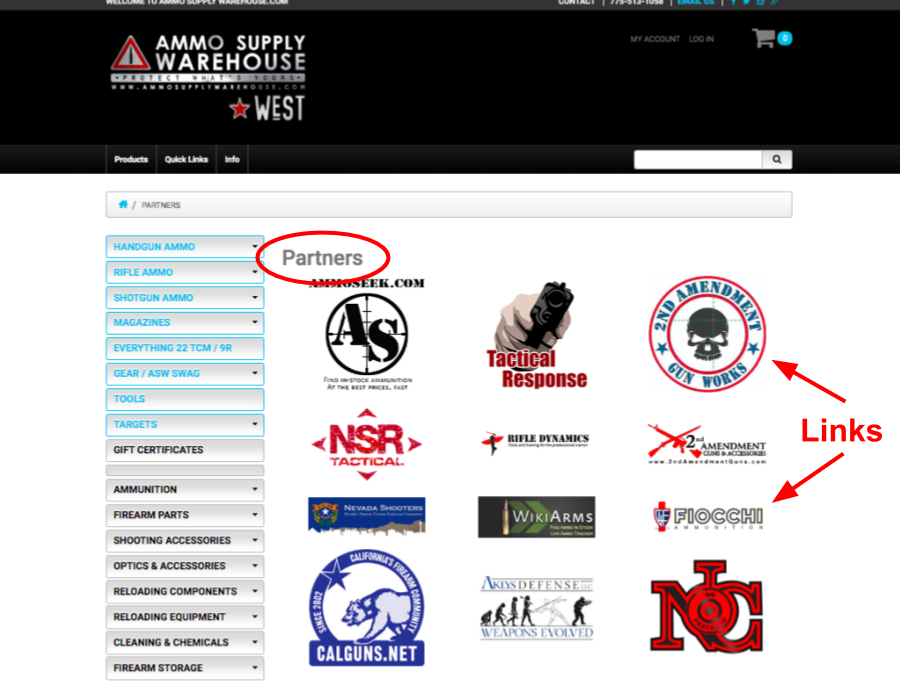
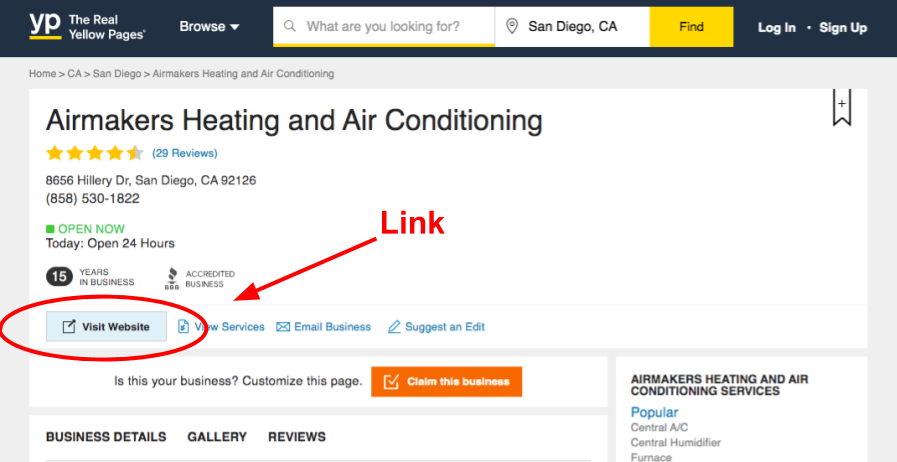
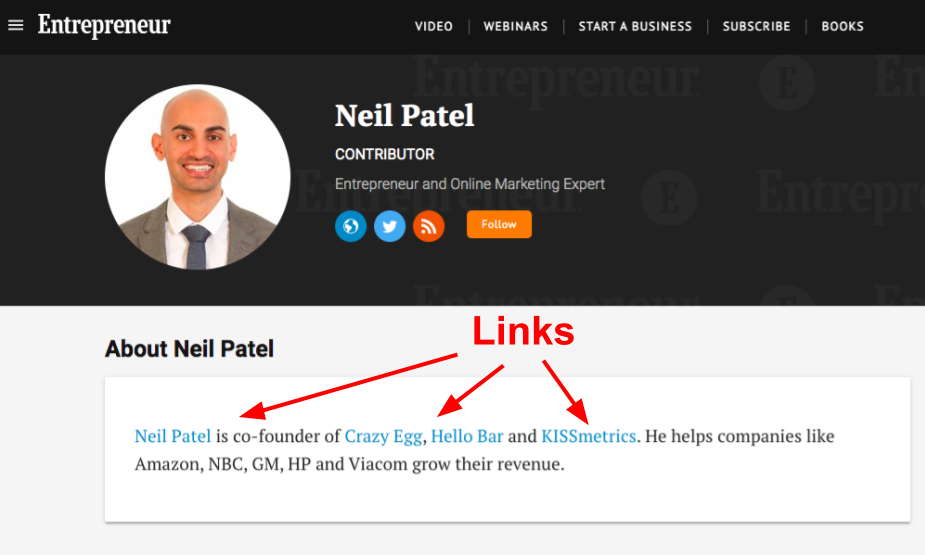
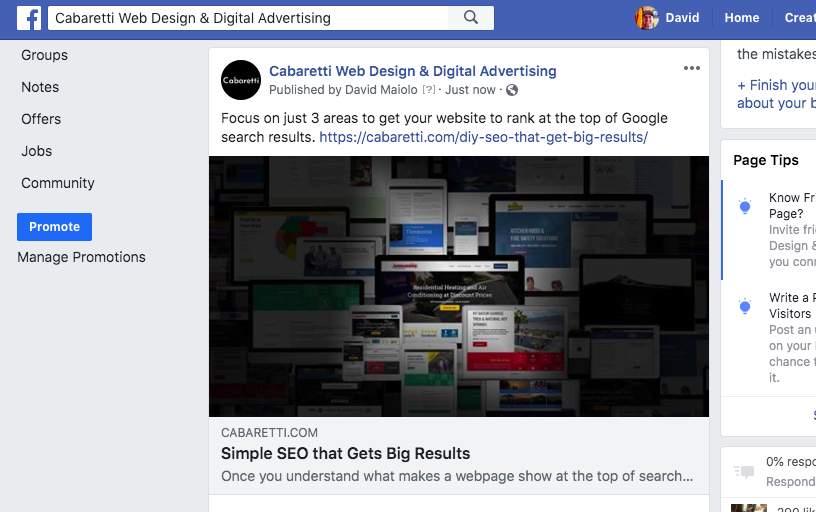

19 Comments. Leave new
Thanks for the nice article Dino. Why don’t you do off page SEO?
Because SEO is an unsustainable business model. in order to be good at it, you have to game the system and try to manipulate Google’s search algorithm. The only ones doing it now are spammers or people using outdated methods.
I agree with Yando (mostly). SEO is unsustainable. It can take a deal of time before you see any results and it’s hard for clients to keep paying for all the work, month after month, without seeing significant improvement. I would have to seek out link opportunities. That takes a lot of time as well as a lot of back and forth with the linking source. I charge $60 an hour and it would jut get too costly for clients. Google is such a moving target that once we achieved results, rank can change with a simple algorithm update. Best for companies to do it on their own consistently and over time. That’s where you’ll get the biggest bang for your buck. Hope that helps, Leslie.
Good advice and well written article. i agree with you completely.
All good stuff, every word of it. Thanks Dino.
Glad you mentioned guest posting because the word was that it was dead, but I get a lot of good traffic from my guest posts. Thanks for the post.
Dino has been working wit my business for years and he definitely knows his stuff. He got us at the top of Google in the early days and our position has never wavered. I know he doesn’t do SEO anymore, but he still knows his stuff. You should heed his word.
Thanks for the kind words BB.
This is a good article because a lot of people get caught up in too much SEO. You need to just follow Dino’s suggestions and write good content and get it shared. That will draw the traffic and you will soon see your website rank better. Guaranteed. People do all these tactics and outdatted stuff that does no good and I totally agree, do not hire a SEO firm. Most of them are crap and just get a bunch of worhtless links that will wind up hurting your website ranking. And if you get penalized, you’ll never get it back in good standing.
I really like to know more ways to get backlinks for my site. Can you share any more ideas? I get alot of emails from people saying they can doit for me. Should I do it?
Well, it depends. As I mentioned in the post, I usually do not recommend using an SEO agency. If you can find a good PR agency that understands SEO, that’s your best bet, but they can be pricey. There are really cheap SEO agencies out there that you can find on Upwork, but you pay for what you get. Sometimes you pay and don’t “get” at all. Be careful using an agency. Really make sure they have legit references and know what they’re doing.
Do you recommend any SEO guys?
Sorry, I do not.
I think you do a disservice to your readers by leaving out all the technical SEo. Some of the technical, like making sure your website is crawled, is the most important thing you can do. Its on all the top ranking factors lists.
I don’t think that was the point of the post. Technical SEO is important, but Dino is trying to keep it simple for most business owners who don’t know how to do it.
@Derek, Did you not even read the post? Or are you just cherry picking just to criticize.
Hey Derek, thanks for your comment. My point was to give business owners who don’t know SEO steps on how they can improve their visibility in search as Jeff and Yando suggested. Of course, crawlability is one of the most important parts of SEO. If your site can’t get crawled by bots then nothing else you do matters. But I wouldn’t expect most business owners to know how to check for that. They rely on professionals like us. This post is about real actions that have real results. Hope that clarifies it.
Wht is technical SEO vs normal SEO?
Hi Carlos, thanks for the question. Technical SEO is kind of what you’d expect and I touch on it a bit in the post. It’s all the stuff web design agencies like us do on the back end to get your website crawled, indexed and categorized properly by Google and the other search engines. It involves efficient code, optimized pages for page load speed and mobile compatibility among many, many other things. So for example, we know that fast loading pages is A Google ranking factor so when we develop a web page, we make sure it loads fast. Having an SSL certificate is a ranking factor as well so we check for it and make sure the site has it. We make sure the title elements are structured properly, are the proper length, contain keywords and have a compelling call-to-action. Most people who are not in the web design business (even many who are) don’t know how to do any of that. Our team does all of it.
To further illustrate my point, we break down SEO into 3 areas; technical SEO, content creation and inbound links. Content and links are your job as the site owner. Technical SEO is up to us as the design and development team.